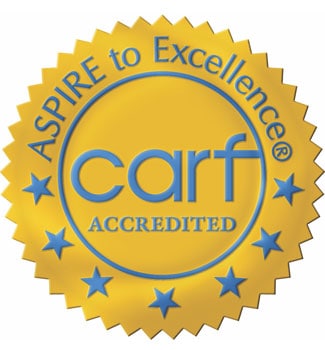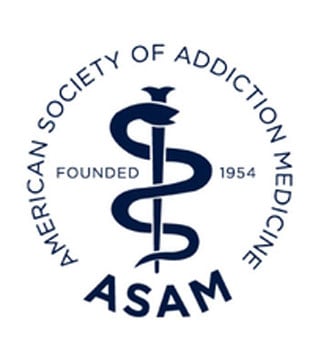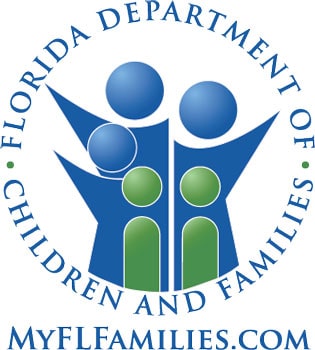Post-Traumatic Stress Disorder (PTSD) Treatment in Florida

Stressful life events happen every day. But those that break your sense of security and result in feelings of helplessness are known as trauma.
Post-traumatic stress can follow a single traumatic event or multiple traumas experienced over time. When signs of post-traumatic stress disorder (PTSD) persist longer than three months, cause significant stress, or disrupt a person’s work, learning how to manage its symptoms in healthy ways is essential.
Healing from trauma and addressing a substance use disorder can be done at the same time. Hanley Center offers safe and effective co-occurring mental health and PTSD treatment in Florida.
Who’s Affected
Traumatic experiences can affect anyone. Military personnel, first responders, doctors, and nurses are more likely to experience trauma more often.
Unfortunately, some individuals choose not to confront work-related traumas because they are concerned about how their colleagues or supervisors might perceive them.
Feeling stigmatized for their mental health needs could lead them to cope alone or even turn to alcohol or drugs to manage PTSD symptoms.
MENTAL HEALTH DISORDERS
Trauma & Treatment
Trauma often involves a threat to your safety or life, but any overwhelming or isolating situation can cause a traumatic impact, regardless of direct physical harm. Your subjective emotional experience defines trauma more than what occurred objectively. The more fearful and helpless you feel, the more likely it is that trauma is the cause.
What Causes PTSD?
PTSD and trauma may result from a variety of experiences:
- Single unexpected events: an accident, injury, or violent attack, particularly during childhood
- Sustained events: natural disasters, fighting a life-threatening illness, or experiencing repeated bullying, domestic violence, or neglect
- Overlooked events: moments you might not automatically think of as traumatic (e.g., the loss of a prized possession, death of a relative, or loss of a close friend after a move). Hospitalization or surgical procedures may often be overlooked as a source of trauma.
Symptoms of Trauma
Now that we understand what can cause PTSD, it’s important to understand what to look for in terms of symptoms.
experiencing trauma symptoms don’t always see them as being tied to a traumatic experience. Instead, they may interpret them as “normal” or a response to a current event.
The following symptoms can appear and become more severe over time by missing the connection to past trauma:
- Anxiety.
- Fear.
- Insomnia.
- Disordered eating.
- Changes in sleeping habits.
- Socialization issues.
- Relationship problems.
- Compulsive behaviors.
- Shock.
- Irritability.
- Anger.
- Panic attacks.
- Memory loss.
- Extreme stress.
- Nightmares.
Types of Trauma Treatment
Our PTSD treatment in Florida offers several evidence-based trauma therapies and individualized treatment plans to address the unique traumatic experiences or causes of PTSD you may have encountered.
We also offer residential inpatient treatment for PTSD at our Residential Mental Health Program and for those with for co-occurring substance use and mental health disorders we offer treatment at our Center for Men’s Recovery, Center for Women’s Recovery, and Center for Older Adult Recovery programs.
Trauma therapies at Hanley Center include:
- Individual and group therapy
PTSD counseling helps patients feel heard and supported while learning new coping skills. - Meditation training
Mindfulness introduces patients to becoming intensely aware of what they’re sensing in their bodies and encourages them not to interpret or judge those sensations. - Eye Movement Desensitization and Reprocessing (EMDR)
EMDR uses eye movement to disrupt patterns of trauma-related memories. - Cognitive Behavioral Therapy (CBT)
CBT reframes traumatic memories, teaches relaxation techniques, and uses role-play to process past experiences. - Biofeedback
Biofeedback teaches patients how to control basic body functions, such as heart rate, to relax when reminded of a traumatic memory. - Neurofeedback
Neurofeedback encourages the brain to develop healthier patterns of activity.
These therapies help patients process painful memories and PTSD causes in a safe and supportive setting. They also introduce new ways to help them cope with the feelings associated with the traumatic experience or the person who caused the trauma.
Post-Traumatic Stress Disorder Symptoms
The effects of PTSD may persist long after a person experiences a traumatic event such as sexual or physical assault, natural disasters, or stress related to military combat.
PTSD Symptoms
How you respond to typical stress or reminders of past trauma can be signs of PTSD.
You may be on high alert for danger or trouble wherever you go. You may have flashbacks to the traumatic experience or think about it frequently. Your reaction to minor problems may look exaggerated to others. PTSD can inhibit your ability to socialize or handle routine tasks. It’s not uncommon to experience nightmares or insomnia with PTSD. Your moods can change often, and depression or anxiety can appear or intensify.
Symptoms of PTSD include various emotional responses to reminders of the event as well as:
- Recurrent episodes of unwanted, intrusive thoughts
- Nightmares, distressing dreams, or flashbacks
- Withdrawal from social circles and loved ones
- Continuous hypervigilance for cues indicating an additional danger
- Unwarranted anger
- Negative changes in feelings and beliefs
- Fluctuating moods
- Anxiety
- Depression
- Dissociative mental experiences
- Inability to function with daily tasks
- Exaggerated reaction to events
- Episodes of panic
- Inability to concentrate
- Insomnia

Post-Traumatic Stress Disorder Treatment
People with untreated PTSD risk developing a substance use disorder, but not all trauma survivors turn to drugs or alcohol.
Hanley Center provides a Residential Mental Health program in a dedicated space, separate from the rest of the center. This PTSD treatment in Florida offers personal, confidential care in a private setting with 24/7 medical and mental health services.
Addiction and PTSD
People who have a PTSD diagnosis may seek relief through the frequent use of alcoholic beverages and drugs. This practice is so common that nearly half of all individuals in treatment for addiction suffer simultaneously from PTSD.
Alcohol and drugs often aggravate existing PTSD symptoms. Intoxication can impair judgment and decision-making, leading to additional trauma, such as becoming the victim of physical violence, sexual abuse, or an accident. The misuse of substances is not an effective coping mechanism and may also lead to the onset or aggravation of an existing condition of PTSD.
During treatment, we incorporate other clinical approaches as needed to help resolve PTSD issues and symptoms. We help patients who have experienced trauma manage their responses to feelings of distress. We teach new skills to regulate emotions and work on healthier choices than alcohol or drugs to turn to when the feelings of panic return.
Gender Issues and PTSD Treatment
When experiencing post-traumatic stress disorder and addiction, treatment should include trauma-informed, evidence-based curriculums with attention to gender issues. Men and women process trauma differently and need a safe space to recover, which is why we offer gender-separate groups in which to discuss and process the effects of PTSD and other co-occurring mental health disorders.
Treatment Modalities for PTSD
Trauma-related disorders such as PTSD require specialized therapies to address the traumatizing experiences. These therapies help reprocess memories and associated reactions and develop healthier coping mechanisms. Our PTSD treatment centers treat the underlying trauma while empowering patients to live independently without relying on substances.
At our Center for Brain Recovery, specialists review the patient’s progress and identify any upcoming psychological difficulties, including PTSD. Our licensed therapists and master’s-level clinicians are part of a multidisciplinary team that offers customized PTSD treatment in Florida.
Based on the unique circumstances of everyone, Hanley Center may also offer evidence-based treatments such as:
- Cognitive-behavioral therapy (CBT)
- Eye Movement Desensitization and Reprocessing (EMDR)
- Neurofeedback
- Biofeedback
- Mindfulness training and meditation
- Individual therapy or group therapy

Heal at Hanley Center
Our proven PTSD treatment in Florida provides tools to assist with anticipating triggers, reducing anxiety and fear responses, managing mood swings and anger, and processing traumatic memories.
Our multidisciplinary team of healthcare professionals has extensive experience in a trauma-informed treatment approach to addiction and expertise in addressing various other co-occurring mental health concerns.
Call the caring staff at Hanley Center today at 561.841.1033. Recovery is possible.
Hanley Center: Most Insurance Accepted
Address: 933 45th Street
West Palm Beach, FL 33407




